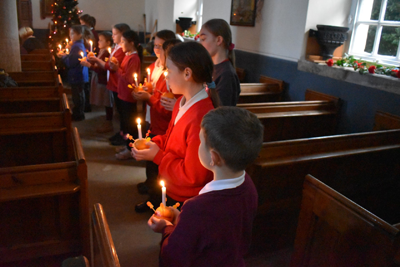

RE

We recognise that RE is not designed to proselytize children, but rather engage children about questions related to religion and, therefore, is an extremely important curriculum area for a wide range of reasons, including the following:
- RE provokes challenging questions about the ultimate meaning and purpose of life, beliefs about God, the self, the nature of reality, issues of right and wrong and what it means to be human.
- RE develops pupils’ knowledge and understanding of Christianity, of other principal religions, other religious traditions and world views that offer answers to the questions above.
- RE offers pupils the opportunity to examine the significance of religion in relation to themselves and others, as they consider how religion and beliefs have an impact on individuals and groups in local, national and global contexts.
- RE offers opportunities for personal reflection and spiritual development. It encourages pupils to explore their own beliefs (whether they are religious or not) in the light of what they learn, examine issues of religious beliefs and faith, and consider their own responses to questions raised. RE encourages empathy and enables pupils to develop their own sense of identity and belonging.
- RE encourages respect for all, including those with differing faiths and beliefs, as pupils develop understanding and appreciation of our diverse society and world.
- RE helps to challenge prejudice, discrimination and racism.
In addition, RE develops a range of RE-related skills and attitudes.
The Curriculum for RE aims to ensure that all pupils:
- can demonstrate an outstanding level of religious understanding and knowledge;
- can thoroughly engage with a range of ultimate questions about the meaning and significance of existence;
- can ask significant and highly reflective questions about religion and demonstrate an excellent understanding of issues related to the nature, truth and value of religion;
- can demonstrate the ability to think for themselves and take the initiative in, for example, asking questions, carrying out investigations, evaluating ideas and working constructively with others;
- can demonstrate significant levels of originality, imagination or creativity, which are shown in their responses to their learning in RE;
- can demonstrate the ability to link the study of religion and belief to personal reflections on meaning and purpose;
- can demonstrate a wide knowledge and deep understanding across a wide range of religions and beliefs.
Planning for our RE curriculum is based on the Durham County Council agreed syllabus 2020. In addition to school-based teaching, we recognise that it is important for our children to experience opportunities to visit places of worship for other faiths and we aim to plan a visit each year to a place of worship.
RE Long Term Plans
Please see below the long term plans for RE
Parents rights to withdraw pupils from collective worship and RE
Parents may request that their child be excused from collective worship and all or part of the religious education (RE) provided. Parents who wish to withdraw their children from RE should be aware of its aims and what is covered in the RE curriculum and that they are given the opportunity to discuss this if they wish. It should be made clear whether the withdrawal is from the whole RE curriculum or specific parts of it. No reasons need be given but the school leadership team may wish to discuss the request with parents.
Important - limitations to withdraw
- If pupils are withdrawn from RE, schools have a duty to supervise them, though not to provide additional teaching. A pupil will be required to work with a different class or in the school office.
- Whilst parents or carers have a right to withdraw children from RE, they should note that children may also encounter religions and beliefs and wider aspects of faith in other areas of the curriculum from which there is no right of withdrawal.
- On occasion, spontaneous questions about religious matters are raised by pupils or issues related to religion arise in other curriculum subjects such as history or PSHE. For example, schools promote community cohesion and help pupils to understand ideas about identity and diversity, feelings and emotions within both religious and non-religious contexts.




